Cadel Evans and the road to retirement
First Australian to win Tour de France and Worlds road race assured of prestige place in history
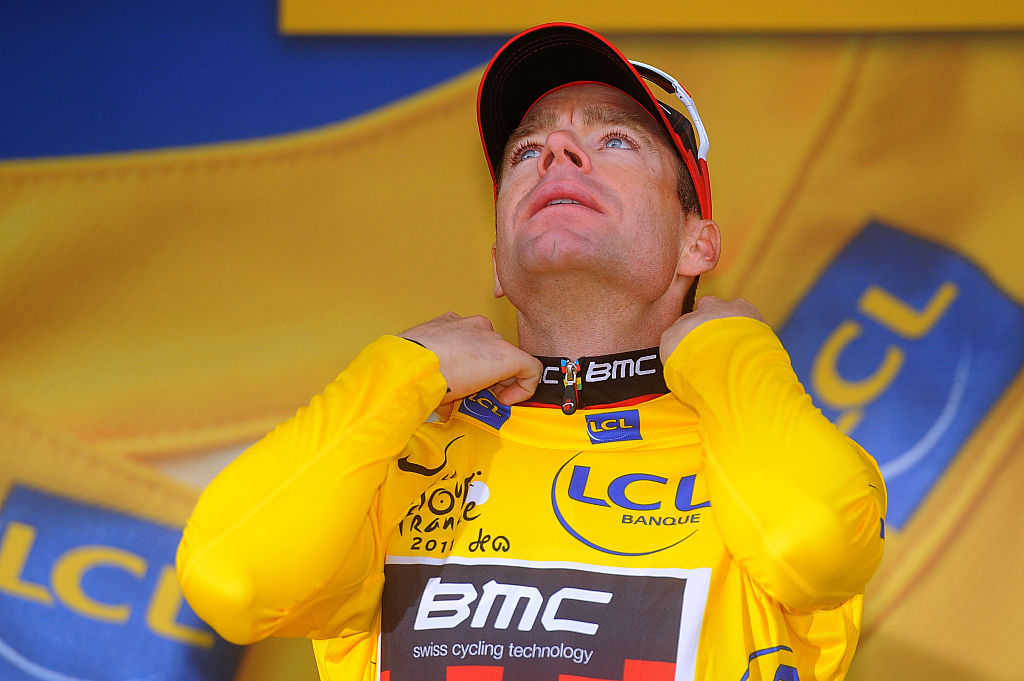
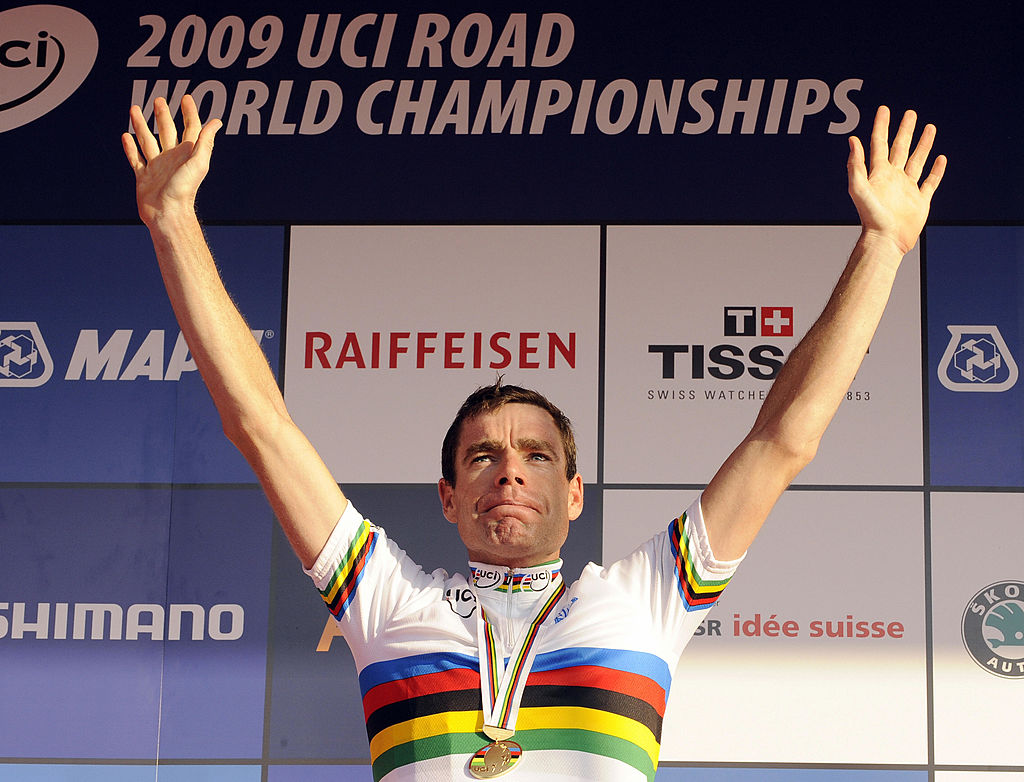
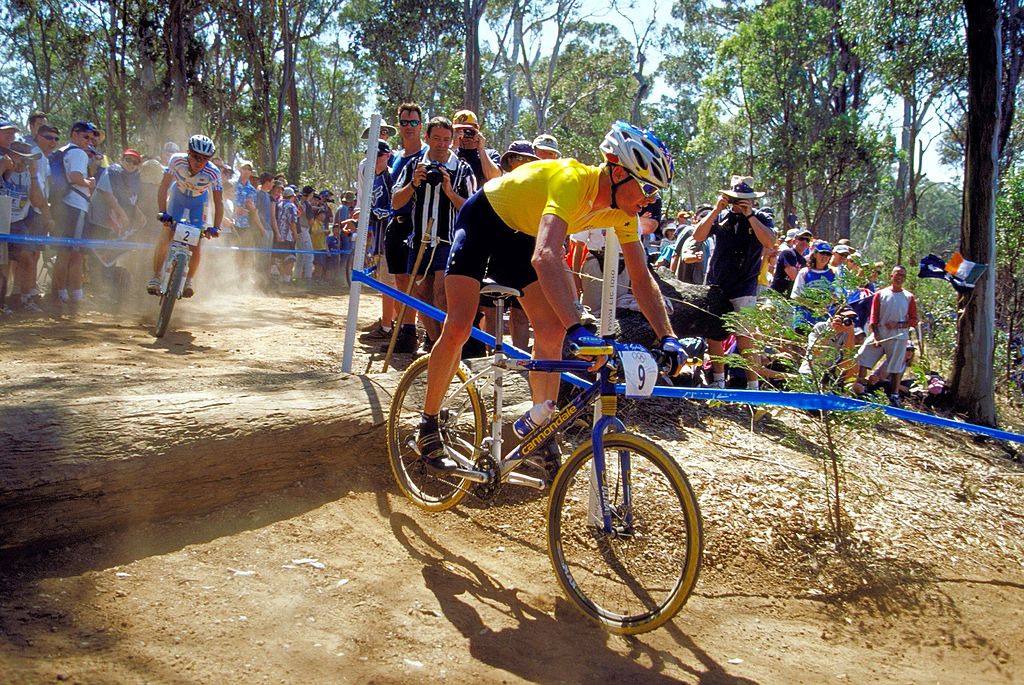
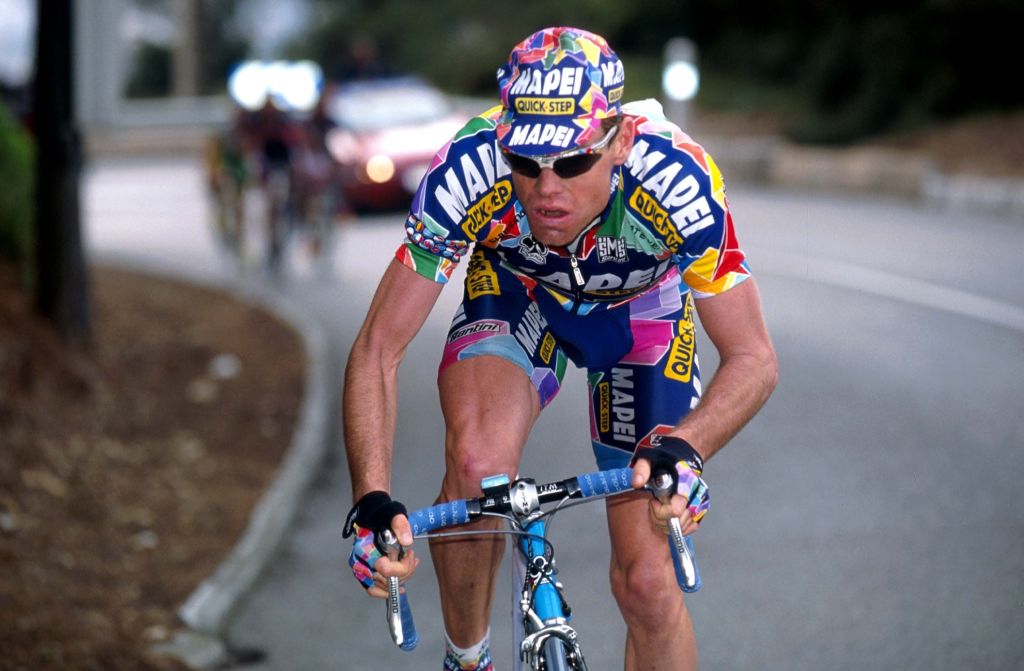
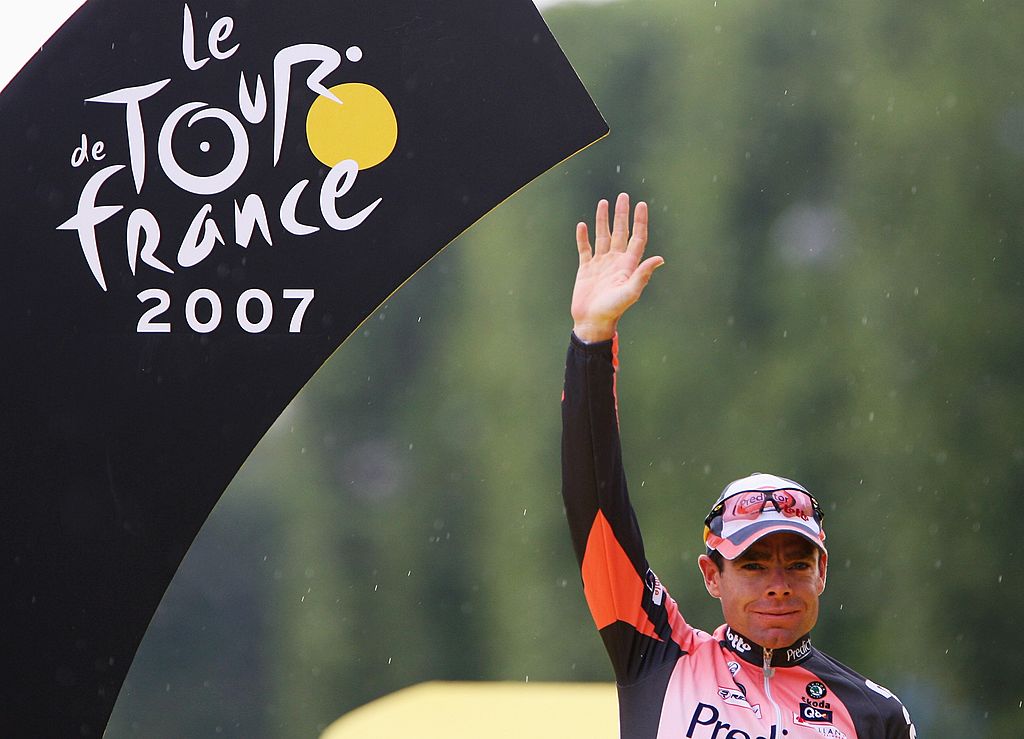
Procycling magazine: the best writing and photography from inside the world's toughest sport. Pick up your copy now in all good newsagents and supermarkets, or get a Procycling print or digital subscription, and never miss an issue.
As the first Australian to win the Tour de France and the men's road race World Championships, Cadel Evans is assured a prime place in the record books. Yet for much of his road career, the ex-mountain biker was a nearly man, seemingly always lacking the killer instinct to turn podium places into victories.
But in the latter years, frustration finally turned to glory. Ahead of the end of his career in February 2015 at the Great Ocean Road Race that bears his name, he just hoped that he wasn't going to get emotional: "I'm just hoping it doesn't bring tears. It's going to be hard to race for the last time."
Procycling examined the career of this sensitive and history-making sportsman.
This article appeared in Procycling magazine issue 199, in 2015
When a champion rider retires, and colleagues are asked to recall their first sighting, meeting or memory of them by way of tribute, usually they talk about a big win or a particular ride. But ask Damien Grundy, mountain bike coach and mentor of Cadel Evans, to reveal his earliest recollection of the first cyclist to go from being a World Cup mountain bike champion to Tour de France winner and he refers to a "pretty miserable day" at the ski town of Thredbo in the Australian Alps in New South Wales in 1993.
Specifically, Grundy cites the moment when his wife, Rachel, looked out the window and saw "that" 15-year-old "kid who keeps coming into the [bike] shop" in Melbourne where Grundy was then working.
Get The Leadout Newsletter
The latest race content, interviews, features, reviews and expert buying guides, direct to your inbox!
Grundy's ears pricked when Rachel mentioned Evans, who was outside racing in a youth race at the Australian Mountain Bike Championships. He got up and looked through the window to watch the boy in action.
"I thought, 'I wonder if he needs a hand?'" says Grundy as he talks about his protégé two decades later. "So I made a point of going to the finish line. As it turned out, he finished second. I went up to him and introduced myself and said, 'Hey, I work in the shop. I've done a bit of racing. If you want a hand, a bit of advice, I'd be keen to help you.'
"That was really the first time I noticed Cadel. I don't think he had raced much. It was one of his first few races. He was second so obviously there was some promise there."
Grundy is speaking at a lunch hosted by one of Evans' Australian partners, Ernst & Young. It is the day after Australia's first Tour winner returned to his homeland to launch the route for the last ever race of his career, the Cadel Evans Great Ocean Road Race, set for 31 January to 1 February, starting and finishing in Geelong, a town south-west of Melbourne.
Grundy's reference to seeing "promise" is an understatement. In 1995, Evans joined the Australian Institute of Sport as a mountain biker and went on to win the 1998 and 1999 UCI MTB World Cups, and compete in the 1996 and 2000 Olympic Games in the discipline. He then made the unusual transition to the road, setting him on a course to becoming Australia's first Tour de France champion.
While Evans' career should not only be remembered for that historic victory in the Tour, its significance is given even more weight by the struggle he endured to achieve it. That included eighth on his Tour debut in 2005, a fourth in 2006, and second places in 2007 and 2008, in which he agonisingly finished a mere 23 and 58 seconds shy of winning.
These were not Evans's only notable achievements. Others include his 2009 world road title win in Mendrisio, Switzerland, five podium places from his 17 starts at the Tour, the Vuelta a España and the Giro d'Italia; and victories at Flèche Wallonne (2010), the Tour de Romandie (2006 and 2011), Tirreno-Adriatico (2011) and the Critérium International (2012).
Even 2014 had successes, such as his stage win and second overall at the Tour Down Under, four days in the leader's pink jersey and eighth place at the Giro, two stage wins plus first place overall at the Giro del Trentino and two stages of the Tour of Utah.
A winning mindset
It was 1999 when Evans's potential on the road began to emerge. While still a mountain biker for Volvo-Cannondale, Evans won the Tour of Tasmania GC by winning the last stage to the top of Mt Wellington, prompting commentator Phil Liggett to declare: "This kid could win the Tour de France one day."
It would have been easy for Grundy to have been left in Evans' wake as his impressive career turned to the road in late 2001, where he has remained ever since. But it is a measure of Grundy's impact that Evans, now 37, still credits him and the lessons he learned in those early days of his career for much of the success he has enjoyed, notwithstanding the importance of Italian Aldo Sassi, who passed away in late 2010.
"It's strange that still today when I do something, at age 37, I go, 'That's right – it's because he told me that when I was 15,' Evans says of Grundy's long-lasting impact on his career, when speaking to the same audience that has just been listening to Grundy reminisce.

A key point to reinforce is that Evans is a winner. It's necessary because his near misses are so well documented. He admits that he still laments the three Grand Tours that slipped through his grasp: the 2007 Tour de France, where he was second to Alberto Contador by 23 seconds; the 58-second loss to Carlos Sastre in the following edition; and the 2009 Vuelta, where a slow neutral service in the Sierra Nevada destroyed his chances of moving into the race lead.
For all the noted peculiarities of his persona that – fairly or not – generated much public and media comment (he has a reputation for being shy, slightly awkward and introverted), Evans was a racer who always sought victory. Not that Evans can't laugh at himself, as he showed with his amusement over the reactions to his "Don't stand on my dog or I'll cut your head off" remark that he made at the stage finish at Prato Nevoso during the 2008 Tour, when his wife, Chiara Passerini, and their dog, Molly, were waiting nearby. Evans even had his own line of 'Don't Stand on my Dog!' T-shirts printed.
But listen to Grundy and you begin to understand how his winning mindset was honed; likewise, Evans' meticulous attention to detail and preparation, and his reluctance to chest-beat his intent.
'As a little tiny fella, he just went for it'
As Grundy explains, he and Evans always went to races intent on winning: "I would always talk about our plan to win a race – what's the plan? We didn't talk about if it's a realistic plan. What's the point of going to a race and saying, 'We'll go and plan to do well,' or 'We'll plan to come 10th.' No, it would be, 'We are here, and that is the process we need to get to the front of this and win.' When we went to a race, we were talking about the process necessary to win.
"I was lucky with Cadel. There were a lot of rewards… He is extraordinary. Even now… I look at his consistency of racing and marvel at it. If you were in a business that was that consistently at the front… you would be running a very successful business."
Listening attentively with a smile as Grundy speaks is Evans' mother, Helen Cocks, who gave birth to him in 1977 at Katherine Hospital in Australia's Northern Territory, around 80km from the aboriginal commune of Barunga where she, Evans and his father, Paul, then lived. The family was split in 1986 when Evans' parents divorced. His father moved to the central NSW coast, while he and his mother settled in the country town of Armidale in New South Wales. They later moved further south to Melbourne, which she still calls home today. Cocks has ridden the journey with Evans, if not in person, then certainly in spirit.
"It's been long, exciting, different, sad, scary, everything," she says. "All his life he has been that sort of person… As a little tiny fella, he just went for it."
But for all those results that 'could've been' or 'should've been', were it not for illness, injury or misfortune, Cocks says that some degree of luck came her son's way as he pursued his love of cycling – often in solitude – from his days as a kid in the outback to now.
"Cadel had this physical capability that was quite extraordinary," she says. "But he also had the mental attitude to make it work, and had the luck along the way to meet the people who could shift that and foster his own innate ability and talents to get where he is."
Such reflection will no doubt follow the retiring champion all the way to the Cadel Evans Great Ocean Road Race on February 1 as it passes through his home town of Barwon Heads.
The only other events he is due to race before that are the Australian National Championships at Buninyong, Victoria, on January 11 and the Tour Down Under from January 17-25.
Evans says he never sought fame and fortune but now accepts the attention he garners.
"I look at it from two ways – fame and fortune," Evans says. "Fortune is always useful and fame… if it brings fortune, that will help, right? But I really started to ride to be the best rider I could be. I thought as things got better and so on – as I won bigger and bigger races – of course I'd become more well-known."
So when Evans realised that "being a good bike rider made me a role model to young – and not so young – people", he thought, "This is actually a great privilege and something to promote sport or the benefit of healthy living."
Evans says he rarely cries, though his eyes did well up as he stood on top of the Worlds podium in 2009, and at his 2011 Tour winner's press conference inside the Grenoble velodrome when he was asked about Aldo Sassi's impact as a trainer and friend.
Recalling Grenoble, where he took the yellow jersey to secure his Tour win, Evans admits his usual steadfast ability to contain his emotions before the media was scuppered when he was asked about Sassi who "had just passed away [from a brain tumour] nine months previously".
"It made me realise that all the things Aldo had said, and the way we rode the race would have made Aldo so proud," Evans says. "It was what we had been working on for so many years. It was confirmation of his belief and philosophy because his whole career was pretty much geared towards the goal of trying to win the Tour de France."
Evans says that the first time he did cry publicly was in frustration after that slow neutral service in the 2009 Vuelta, which was won by Valverde. He did so again during the court battle over Valverde's involvement in the Operación Puerto doping case that eventually saw Valverde banned for two years, only returning to competition in 2012.
He says it was "not so much [because] I didn't win the case but the situation I had been put in. I felt undeserved by that whole situation. It was probably [because] someone who was not meant to be racing in our sport at that moment was given the win".
But despite low moments such as these, Evans maintains that one of the good things about his career has been that "you never know what's going to happen".
"A week later," he says, referring to that bad experience at the 2009 Vuelta, "luck turned my way again on the roads to Mendrisio."

Evans is getting ready for his heartstrings to be pulled before he retires. He was certainly taken back by the words of Australian prime minister Tony Abbott – an avid cyclist – in a recorded video screened upon his return to Australia at his welcome-back lunch.
Abbott heaped praise on Evans for his "grit and determination" and for having "stamped yourself as one of the all-time great Australian sportsmen and perhaps the toughest man to ever represent our country". Evans concedes that he was a little "embarrassed and overwhelmed" at Abbot's effusive compliments.
The decision to retire, Evans says, has not been easy, even if it was one that he was clearly contemplating during the Giro in April when – after stage 17 and the day after he lost a whack of time as he battled against the snow and wind – he spoke to The Sydney Morning Herald of his fear on the descent off the Gavia.
This came from a former mountain biker who would normally list an ability to descend faster than most as one of his strengths.
With all hope of an overall victory in the Giro gone in his last bid for a Grand Tour, Evans said of the 16th stage from Ponte de Legno to Val Martello: "Over the Gavia, I was thinking of my well-being. I'm really scared when I can't see where I have to go."
Back in Australia, Evans confirmed that retirement was definitely crossing his mind after that Giro – in which he finished eighth – and after skipping the Tour in July for the first time in 10 years in a pre-arranged schedule.
The decision to retire may not have been announced until after Evans rode the Vuelta for Spanish teammate Samuel Sánchez, but as Evans admits: "When the result didn't come [at the Giro], I could accept that maybe I am not capable of winning a Grand Tour anymore. It makes it pretty easy. If I can't win it, I don't necessarily want to be in it."
But the process of locking in that decision was not so simple.
"There is a massive amount of motivation and momentum behind what I do that has got me to do all the work that is required – the training, travel and sacrifices, and discipline you need to perform in any sport – or anything…" Evans says. "To put the brakes on that momentum is not that easy. There is quite a force behind it after all these years."
An emotional end
While Evans would obviously love to win any one of his last three races, he is also realistic.
Asked if he is ready for the emotion of that final day, he says: "I'm just hoping it doesn't bring about the tears. It's going to be hard to pin on a number for the last time, race for the last time and probably come in for the last kilometre for the last time. It could be difficult for me but at the same time I've really given everything to this sport."
Looking back on the whole journey, does Evans have any major regrets?
"I do have a few," Evans says. "But overall I go away having achieved or having been able to experience far more than I even dreamed of."
So what does he think he might miss the most? Evans, who after retiring from the sport, will work as an ambassador for BMC bicycles, laughs before revealing: "I'm not going to miss pressing the 'Set' button on my SRM [power meter]."
Oh, there is also a private life to lead, too. Evans and his wife have an adopted son, Robel, whom he wants to spend more time cycling with and it seems that the feeling works both ways.
"My son asks: 'How many races have you got to do?'
"'Why?' I ask.
"'So I can ride with you on the weekends!'"
Procycling magazine: the best writing and photography from inside the world's toughest sport. Pick up your copy now in all good newsagents and supermarkets, or get a Procycling print or digital subscription, and never miss an issue.
Follow @Procycling_mag on Twitter
Rupert Guinness first wrote on cycling at the 1984 Victorian road titles in Australia from the finish line on a blustery and cold hilltop with a few dozen supporters. But since 1987, he has covered 26 Tours de France, as well as numerous editions of the Giro d'Italia, Vuelta a Espana, classics, world track and road titles and other races around the world, plus four Olympic Games (1992, 2000, 2008, 2012). He lived in Belgium and France from 1987 to 1995 writing for Winning Magazine and VeloNews, but now lives in Sydney as a sports writer for The Sydney Morning Herald (Fairfax Media) and contributor to Cyclingnews and select publications.
An author of 13 books, most of them on cycling, he can be seen in a Hawaiian shirt enjoying a drop of French rosé between competing in Ironman triathlons.